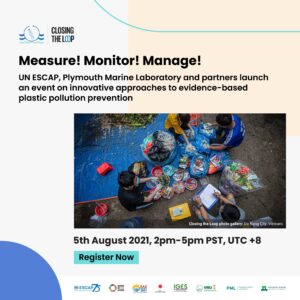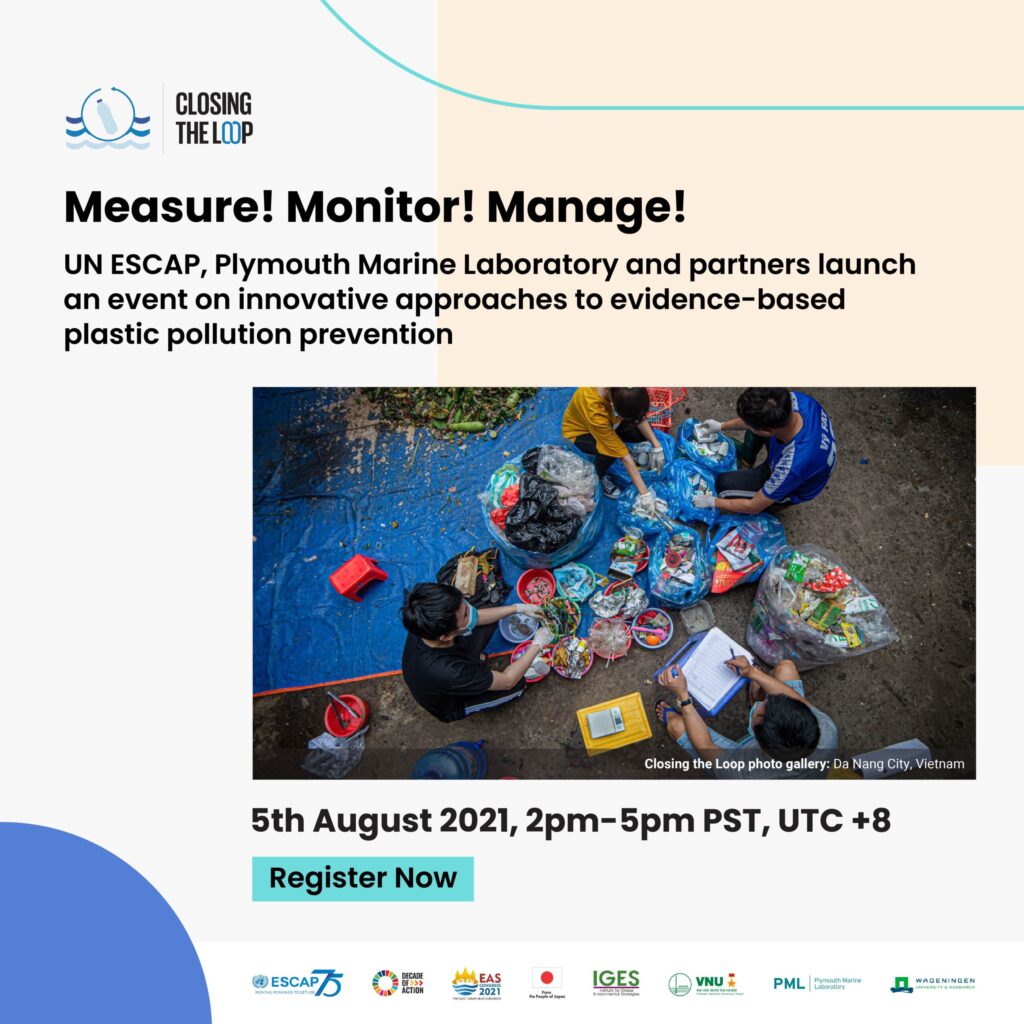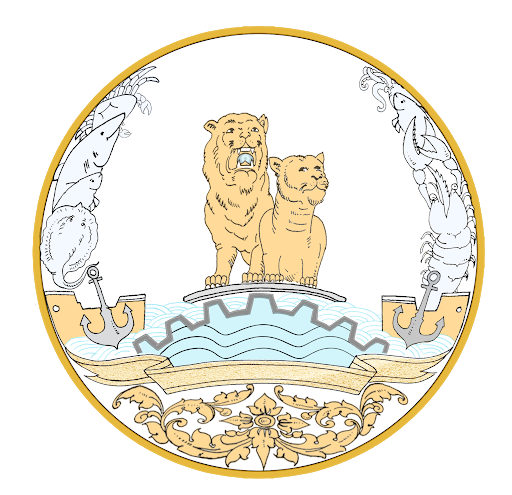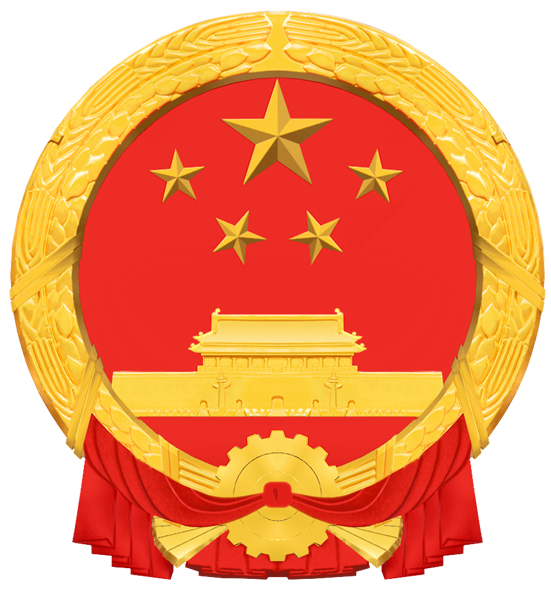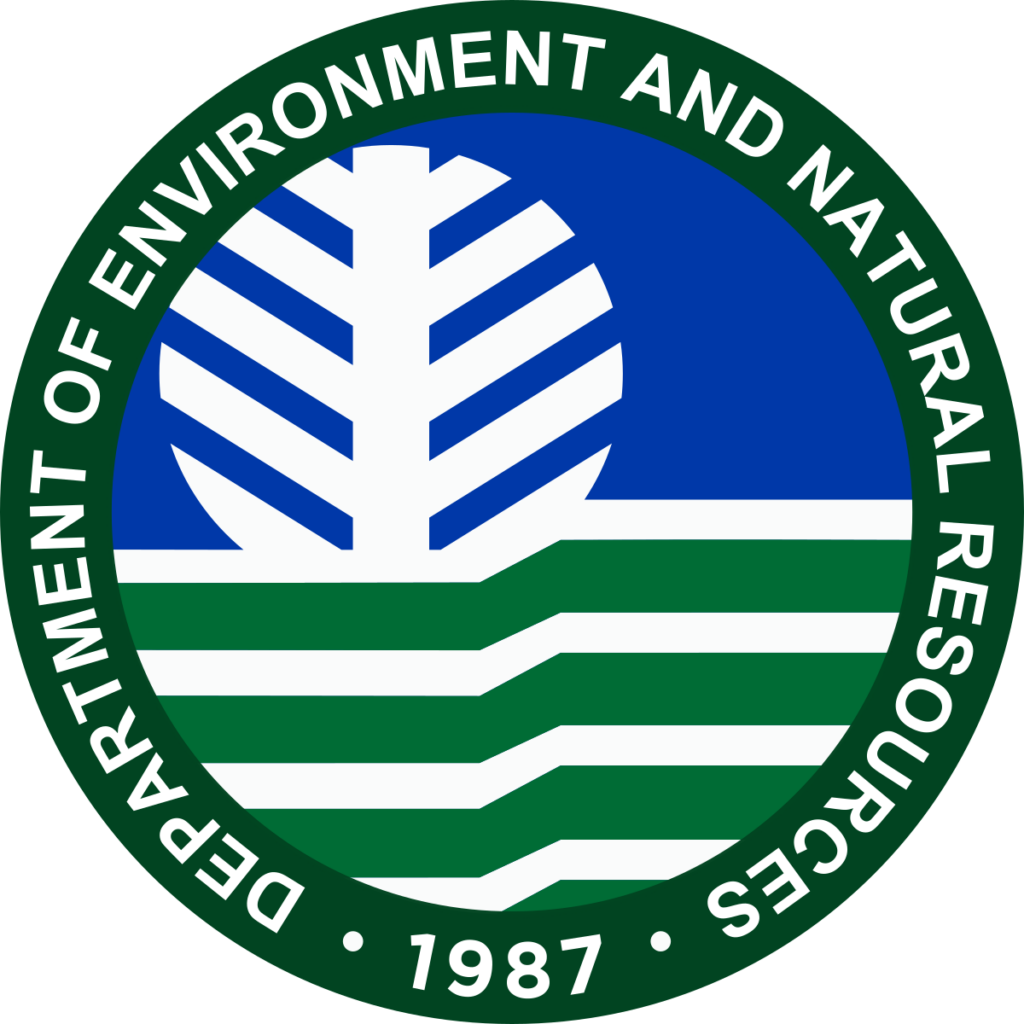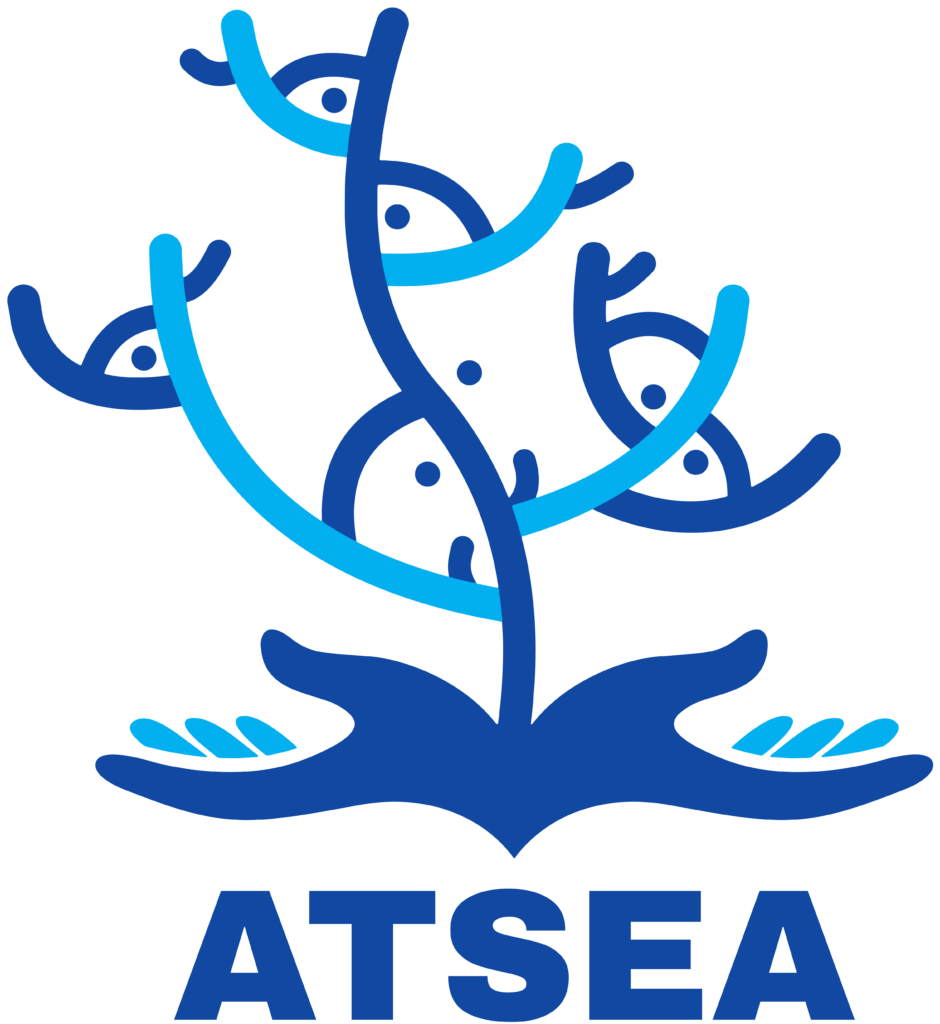Measure! Monitor! Manage! UN ESCAP, Plymouth Marine Laboratory and partners launch an event on innovative approaches to evidence-based plastic pollution prevention (5th August 2021, 2pm-5pm, UTC +8)
South East Asia contributes to over 60 percent of the global plastic pollution in the marine environment and with their cities growing exponentially, urban waste management systems are struggling to keep up, only worsening the problem.
The event, entitled “Measure! Monitor! Manage! Innovative approaches to evidence-based plastic pollution prevention” will focus on the latest innovative approaches in managing marine plastic pollution and deep dive into tracking plastic pollution in cities and the ocean with real-world applications, live demonstrations, and a round table session. The session will be led by experts, scientists, and urban practitioners in plastic waste measuring, monitoring, and management.
The event will be held on 5 August 2021, 2 PM – 5 PM (UTC+8) via Zoom. To join, please register via https://forms.gle/JH11R1J3FLknpuBQA .
One of the event co-organizers, the United Nations Economic and Social Commission for Asia and the Pacific (UN ESCAP), is undertaking an initiative towards reducing the environmental impacts in ASEAN cities. Entitled “Closing the Loop (CTL),” the project addresses plastic waste pollution and leakage into the marine environment. The event will highlight the latest project developments and share insights from their free eLearning course: Cities and Marine Plastic Pollution: Building a Circular Economy.
The CTL Project is supported by the Government of Japan and works with several Japanese agencies/organizations, including the Institute for Global Studies (IGES), to realize the Osaka Blue Ocean Vision. This platform, developed at the G20 summit in Osaka in 2019, aims to bring marine plastic litter to zero by 2050.
Plymouth Marine Laboratory (PML), a PEMSEA non-country partner based in the United Kingdom (UK), has been working with UN ESCAP on the plastics issue as well and will, together with the University of Wageningen (WUR) in the Netherlands, demonstrate state-of-the-art technologies and techniques in a live demo session during the event that can measure and monitor plastic waste in urban and marine environments.
“Plastic marine litter is one of today’s most serious emerging issues, and without any countermeasures, the amount of plastic waste in the ocean will outweigh fish by 2050, posing a threat to the environment and our way of life,” said Kazuya Nashida, the Ambassador of Japan in Thailand. “It is said that the COVID-19 pandemic has increased pollution from disposable products, such as plastic face masks and hand sanitizer bottles. To counteract this, we must work together to identify sources and pathways to reduce the environmental impact of plastic waste.”
This event is part of a series of collaborations set to culminate in the East Asian Seas Congress 2021 from 1-2 December 2021.
The August 5 event has been co-organized by: PML, UNESCAP, IGES, WUR, and the Viet Nam National University (VNU).
For more information on the project, please visit: https://www.unescap.org/projects/ctl.


